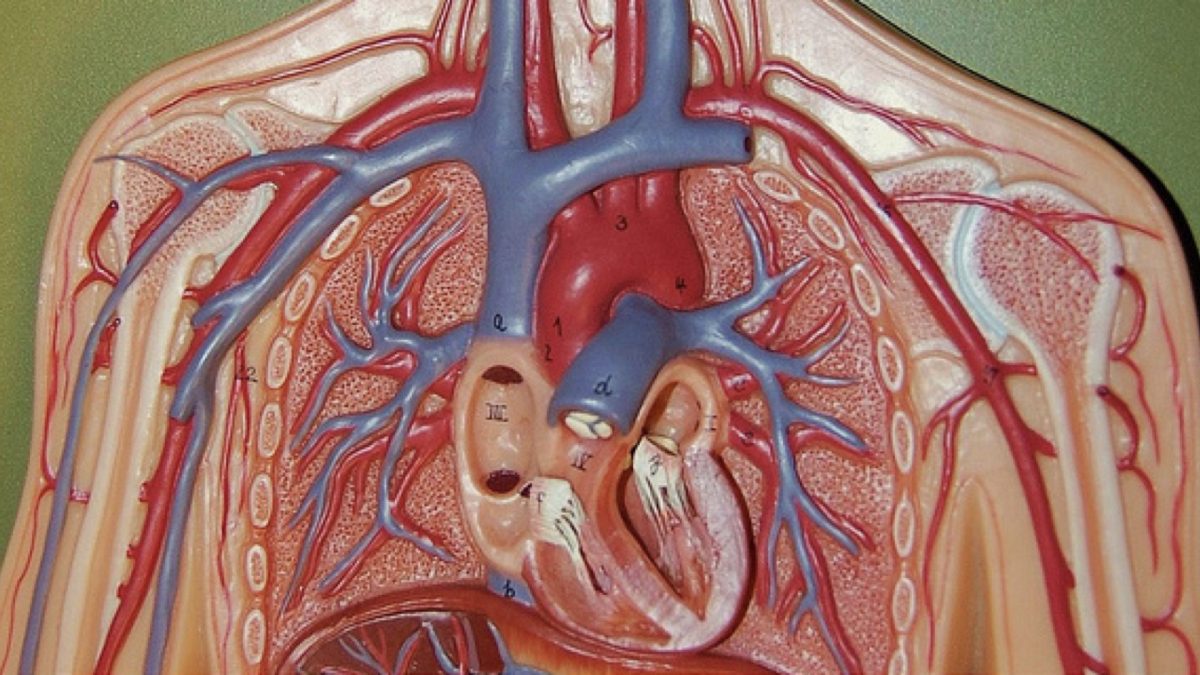Endothelial dysfunction is the initial step in the development of peripheral artery disease, heart disease, and stroke. As I discuss in my video Plant-Based Diets and Artery Function, the remarkable finding is that progressive endothelial dysfunction—the decline in the functioning of our arteries—is not an inevitable consequence of aging. We can retain the arterial function we had in our 20s into our 60s, like the elderly Chinese in my video Tea and Artery Function. This may be due in part to green tea intake, but “[o]ther important dietary differences relating to increased consumption of vegetables and fish, with lower consumption of [other meat and dairy] in the traditional Chinese diet, may be contributing to the protection observed in older Chinese arteries.”
It’s probably not the fish. Pooling all the best double-blind, placebo-controlled studies found that fish oil supplementation has no significant effect on endothelial function. In by far the largest study done to date, a comparison of doses of fish oil equivalent to one, two, or four servings of fish per week found no effects of these long-chain omega-3 fats. This is consistent with studies that have looked at whole fish consumption as well.
Overall, there was no significant association between fish intake and endothelial function. In fact, in women, those eating the most fish had the worst arterial function. Women who ate fish more than twice a week had significantly impaired endothelial function compared to those who never or only rarely ate fish.
So, if it’s not the fish, could it be the plants? Vegetarian diets appear to have a directly beneficial effect on endothelial function. Indeed, vegetarians’ arteries dilate four times better than omnivores’ arteries. But, could that simply be because vegetarians tend to smoke less? Within five minutes of smoking a single cigarette, our endothelium is brought to its knees, completely clamped down, and this happens if you’re a smoker or simply breathing in second-hand smoke. But the diet study excluded all smokers completely. The beneficial effects were independent of non-dietary risk factors. In fact, a healthy diet may even trump smoking. The preservation of endothelial function in older Chinese may help explain why they have such low heart attack rates despite their high prevalence of cigarette smoking. And, the improved arterial function was well correlated with the duration of eating vegetarian: The longer they ate healthy, the better their endothelial function appeared to be.
That was a cross-sectional study, though, a snapshot in time, so you can’t prove cause and effect. What we need is an interventional trial—put people on a plant-based diet and see if their arterial function improves—which is exactly what Dr. Dean Ornish did, showing a significant boost in arterial function compared to control.
Is this just some intangible risk factor test result, though, or does it actually have real world implications? Are their arteries naturally dilating so much better that their chest pain actually improves?
Ornish showed that on his plant-based diet and lifestyle program, cardiac patients had a 91 percent reduction in angina attacks. In contrast, control group patients, who instead were told to follow the advice of their personal physicians for diet and lifestyle advice, had a 186 percent increase in reported angina attacks. This “marked reduction in frequency, severity, and duration of angina [chest pain with the plant-based lifestyle intervention]…was sustained at similar levels after 5 years. This long-term reduction in angina is comparable with that achieved following coronary artery bypass surgery or angioplasty,” but without the knife.
But that was back in the 1990s, when Ornish was only studying a few dozen patients at a time. How about a thousand patients put on a healthy lifestyle track with a whole-food, plant-based diet? Within three months, nearly three-quarters of angina patients became angina-free.
Wait a second. The Ornish program involves a number of other healthy lifestyle interventions, such as exercise. How do we know it was the diet? That’s precisely the topic of my Plant-Based Treatment for Angina video.
What would happen if, instead of going on a plant-based diet, you went on a low-carb diet? You don’t want to know. But if you must, check out Low-Carb Diets and Coronary Blood Flow.
For more on green tea, see Tea and Artery Function.
What effects might other foods have? See:
- Eggs and Arterial Function
- Walnuts and Artery Function
- Dark Chocolate and Artery Function
- Coffee and Artery Function
- Fatty Meals May Impair Artery Function
- Olive Oil and Artery Function
- Sodium and Arterial Function: A-Salting Our Endothelium
- Vinegar and Artery Function
- Tea & Artery Function
And don’t miss my overview video: How Not to Die from Heart Disease.
In health,
Michael Greger, M.D.
PS: If you haven’t yet, you can subscribe to my free videos here and watch my live, year-in-review presentations:
- 2012: Uprooting the Leading Causes of Death
- 2013: More Than an Apple a Day
- 2014: From Table to Able: Combating Disabling Diseases with Food
- 2015: Food as Medicine: Preventing and Treating the Most Dreaded Diseases with Diet
- 2016: How Not To Die: The Role of Diet in Preventing, Arresting, and Reversing Our Top 15 Killers
